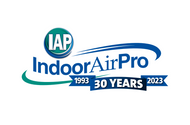Why Does My Furnace Smell?

Like all appliances, your furnace requires routine maintenance and cleaning. It’s not uncommon to notice the smell of burning dust emitting from your furnace or heater at the beginning of the heating season.
This is typically an indication of a unit in need of cleaning. But some smells may be warning signs of a larger, more dangerous problem. If you ever smell odors of gas, sulfur, or burning plastic, it’s time to call in the pros.
What Do We Mean by Furnace Odors?
The first time you turn on your furnace for the cold season, you will likely smell something. That smell is typically burning dust pushing its way through your air ducts. The distinct smell of dust or burning dust should dissipate in a matter of hours.
Other odors may indicate a dangerous problem with your unit. Odors of burning plastic, gas, sulfur (or rotten eggs), or mildew should not be written off as a short-term inconvenience. The problems these odors may indicate leave a lasting impact on your health.
Below we go into details of common odors that can come from your furnace that you should pay attention to:
My Furnace Smells “OFF”
“OFF” odors or “funny” odors may be localized around your furnace, but you will more likely detect the smells throughout your home as the HVAC unit circulates warm air. The most common “funny” furnace smells are often referred to as burning dust, must, rotten eggs, and burning plastic.
- Burned Dust: Like all spaces in your home, dust, dander, pollen, and mold spores may collect on the inside and outside of your unit and throughout your HVAC ductwork. This is especially true of homes that do not have central air. It’s not uncommon to smell dust or burning dust when the heat is first turned on for the season.
While dust is less dangerous than some of the other odors you may detect from your central heating system, circulating dust particles will directly impact the indoor air quality (IAQ) inside your home. Poor indoor air quality has been linked to many common health conditions.
Engaging in professional furnace maintenance and cleaning, installing an air filtration system, and having your air ducts cleaned every three to five years, can and will help improve the quality of the air, your family breathes.
- Must: A musty smell may indicate several issues, including a problem with your central air conditioner condensate drain line, a furnace humidifier filter in need of replacement, or mold and Mildew growth inside your unit or air ducts DUST, MOLD, and MILDEW will have a negative impact on the health of your loved ones. If you suspect mold growth is happening in any part of your HVAC system, it’s important to work with a professional to remove the mold and remediate the space immediately.
- Rotten eggs: Odors of sulfur (often described as rotten eggs) may indicate a gas leak in your home. Propane and natural gas are both colorless and odorless. Energy companies must add a chemical, mercaptan, to natural gas and propane gas supplies so that a leak may be detected more easily.
- Burning plastic: It’s possible that a brand-new furnace or central heating system may emit an odor of burning plastic for a short period of time after installation. However, an existing unit should never smell like burnt or burning plastic. This may indicate that your system is overheating or that components are wearing against each other.
An HVAC system that smells like burning plastic should be inspected and repaired by an HVAC technician.
Is It Normal to Smell Gas Near a Furnace?
NO! Mercaptan smells may mean disaster for your home. Gas leaks are incredibly dangerous and should be addressed immediately. If you suspect a gas leak in your home, it’s important to:
- Turn off any gas-powered appliances.
- Evacuate all pets and people from the premises (leaving doors and windows open as you exit).
- Call 911. Emergency personnel will assist in shutting off the gas supply and investigating the space.
Once your home is safe, work with an IAP HVAC technician to repair or replace your unit.


